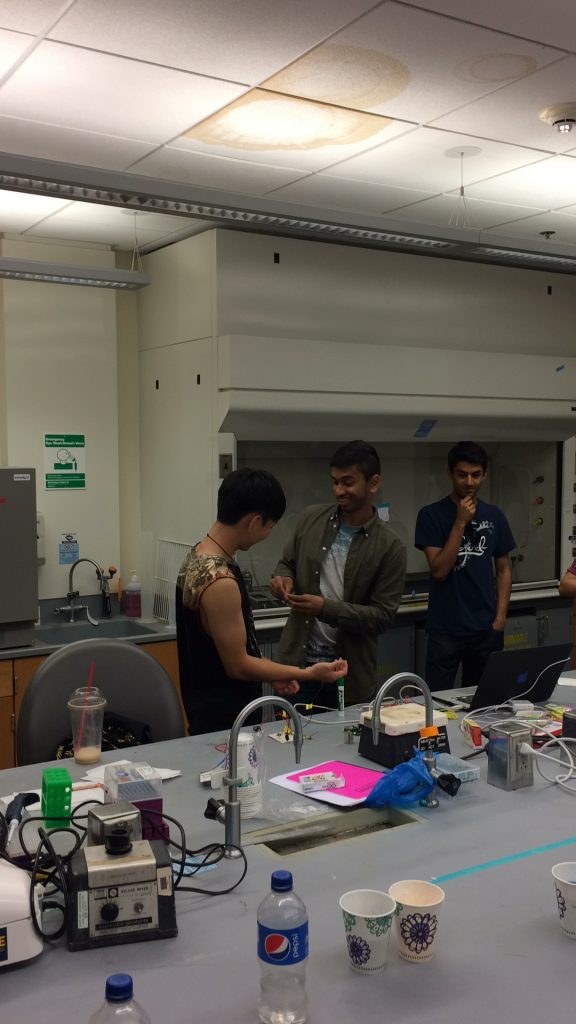There is so much to see and do at UC Berkeley, and the university has countless achievements by its students and faculty. However, UC Berkeley is still known first and foremost as one of the top research universities in the world, and the objective of the trip was to let the Hwa Chong International School students experience some of that academic magic. Together with the help of Professor Terry Johnson from the department of bioengineering, we arranged for students from the undergraduate honors society and for graduate students from the graduate student association to prepare two days of workshops for the students.
These workshops gave the students the opportunity to see some of the areas that students of bioengineering study, both as an undergraduate and as a graduate student. We also had Q&A panels with both groups of students, so the students from Hwa Chong International School could ask of them any and all questions that they had about studying in the US in general, at Berkeley in particular or about their prospects in bioengineering. Of course, the main purpose of workshops is to give students the chance to get their hands dirty. They did simple experiments in microfluidics and even built a simple electrocardiogram to measure someone’s heartbeat:

Personally, I feel that this is one of the most valuable aspects of our USA Summer Camps, because it brings to life all the things that students have read about in their textbooks or heard about in lectures. We aim to give students the chance to see and touch all the theory in their books, to see how what they are learning translates into useful real-life applications. This is the best way to get students inspired and fired up about what they are learning.
Of course, what workshop would be complete without some lectures, so we were very fortunate that Professor Terry Johnson himself was available to give us a short lecture. He touched on what Bioengineering really is all about, and what were some of the discoveries that have been made and how they are benefiting mankind. The students found the talk to be extremely interesting as it touched on a topic that they may have only flirted with in school (if they take biology) but would not have studied in great detail.
